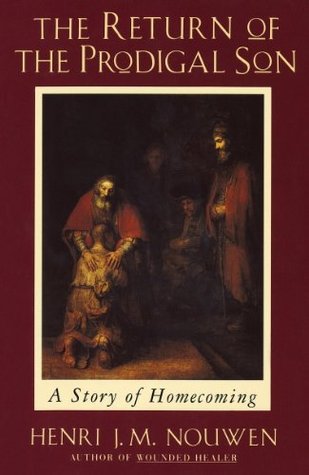More on this book
Community
Kindle Notes & Highlights
Read between
December 21 - December 25, 2024
In the context of a compassionate embrace, our brokenness may appear beautiful, but our brokenness has no other beauty but the beauty that comes from the compassion that surrounds it.
As the Beloved, I can confront, console, admonish, and encourage without fear of rejection or need for affirmation. As the Beloved, I can suffer persecution without desire for revenge and receive praise without using it as a proof of my goodness.
It’s almost as if I want to prove to myself and to my world that I do not need God’s love, that I can make a life on my own, that I want to be fully independent. Beneath it all is the great rebellion, the radical “No” to the Father’s love, the unspoken curse: “I wish you were dead.”
Receiving forgiveness requires a total willingness to let God be God and do all the healing, restoring, and renewing. As long as I want to do even a part of that myself, I end up with partial solutions, such as becoming a hired servant.
There was always the conscious effort to avoid the pitfalls of sin and the constant fear of giving in to temptation. But with all of that there came a seriousness, a moralistic intensity—and even a touch of fanaticism—that made it increasingly difficult to feel at home in my Father’s house. I became less free, less spontaneous, less playful, and others came to see me more and more as a somewhat “heavy” person.
It is the complaint that cries out: “I tried so hard, worked so long, did so much, and still I have not received what others get so easily. Why do people not thank me, not invite me, not play with me, not honor me, while they pay so much attention to those who take life so easily and so casually?”
I was completely incapacitated—unable to receive and participate in the joy that was there. In an instant, the joy in that room had become a source of resentment. This experience of not being able to enter into joy is the experience of a resentful heart.
I want to speak or act out of my most generous self, I get caught in anger or resentment. And it seems that just as I want to be most selfless, I find myself obsessed about being loved. Just when I do my utmost to accomplish a task well, I find myself questioning why others do not give themselves as I do. Just when I think I am capable of overcoming my temptations, I feel envy toward those who gave in to theirs. It seems that wherever my virtuous self is, there also is the resentful complainer.
The return of the younger son makes him call for a joyful celebration. The return of the elder son makes him extend an invitation to full participation in that joy.
Trust and gratitude are the disciplines for the conversion of the elder son.
It requires a real discipline to step over my chronic complaint and to think, speak, and act with the conviction that I am being sought and will be found.
The discipline of gratitude is the explicit effort to acknowledge that all I am and have is given to me as a gift of love, a gift to be celebrated with joy.
The question is not “How am I to find God?” but “How am I to let myself be found by him?” The question is not “How am I to know God?” but “How am I to let myself be known by God?” And, finally, the question is not “How am I to love God?” but “How am I to let myself be loved by God?”
Who has truly challenged us to liberate ourselves from immature dependencies and to accept the burden of responsible adults?
Jesus shows us what true sonship is. He is the younger son without being rebellious. He is the elder son without being resentful. In everything he is obedient to the Father, but never his slave. He hears everything the Father says, but this does not make him his servant. He does everything the Father sends him to do, but remains completely free. He gives everything, and he receives everything.
But grief is the discipline of the heart that sees the sin of the world, and knows itself to be the sorrowful price of freedom without which love cannot bloom. I am beginning to see that much of praying is grieving. This grief is so deep not just because the human sin is so great, but also—and more so—because the divine love is so boundless. To become like the Father whose only authority is compassion, I have to shed countless tears and so prepare my heart to receive anyone, whatever their journey has been, and forgive them from that heart.
As the Father, I have to believe that all that the human heart desires can be found at home. As the Father, I have to be free from the need to wander around curiously and to catch up with what I might otherwise perceive as missed childhood opportunities. As


